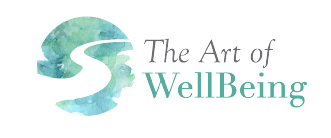It’s Ok Not to Know
When I coach groups, I often ask leaders how they handle not knowing.
Consultant Susan Beaumont invites leaders to make three spiritual shifts in seasons of uncertainty and volatility—from knowing to unknowing, from advocating to attending, and from striving to surrender. A few insist they are comfortable admitting they don’t have answers or a compelling vision. But most point out that people expect them to know things and advocate for their ideas! And when they admit they don’t know, it can make those they lead downright uncomfortable. (And make the leader uncomfortable also!)
How easy or challenging is it for you to work in a space of not knowing? Believe it or not, this skill is essential for professional coaches, and I believe is equally essential for all leaders in a volatile and uncertain world. To be confident and grounded while remaining open and flexible requires intention and disciplined practice. The skill of being ok with not knowing is a fundamental part of being fully conscious and present with those we lead.
Not knowing is countercultural because leaders are expected to know many things and advocate strongly for their best ideas. Admitting that we do not know creates vulnerability. Those we lead ask for our opinions, vision, and strategies. They tell us this is what they need from a leader—to promote with all our energy what we believe to be true. They suggest this is what they pay us for—to give them answers so that everyone’s anxiety is reduced.
I believe there is another way to lead. And while this other way is impossible without vulnerability, being ok with not knowing also creates enormous potential for collaborative learning and growth. This other way requires trusting that all people are creative, resourceful, and whole. It demands that we believe we have much to learn from one another. Leading without predetermined answers and strategies helps to fulfil our need for honest conversation where decisions and direction are owned by all. It is ok not to know!
We are nearing the end of Advent— a season of mystery and unknowing, waiting and watching. Advent is a time when we hold in our body, mind and spirit, the discomfort of “not yet.” In the holding we make space for both sadness and joy, stretching and strengthening our capacity for both. Without being present to the sadness, our experience of joy has less depth and breadth. You might say that Advent is a season when we are invited to embody the grace of not knowing. And in that experience of grace, we receive the freedom of surrendering to a force of love larger than our anxiety and fear.
Richard Rohr describes this freedom: “Prayer is largely just being silent: holding the tension instead of even talking it through, offering the moment instead of fixing it by words and ideas, loving reality as it is instead of understanding it fully. Prayer is commonly a willingness to say, ‘I don’t know.’ We must not push the river, we must just trust that we are already in the river, and God is the certain flow and current.
That may be impractical, but the way of faith is not the way of efficiency. So much of life is just a matter of listening and waiting, and enjoying the expansiveness that comes from such willingness to hold. It is like carrying and growing a baby: women wait and trust and hopefully eat good food, and the baby is born.”
I invite you to join me this Christmas and New Year’s in the practice of unknowing. May our holding of the Mystery enlarge our souls—helping us to become more generous, compassionate, and kind.
